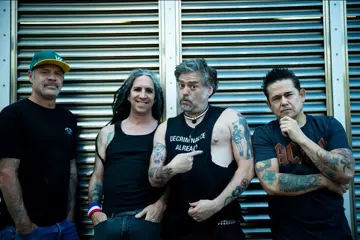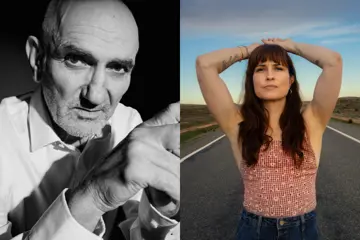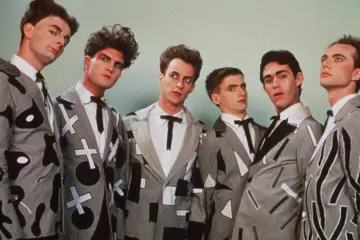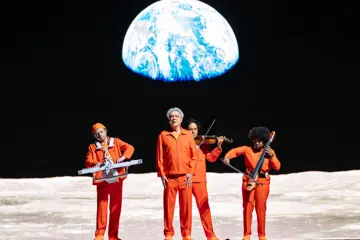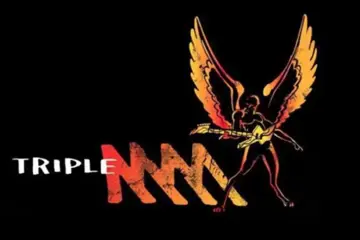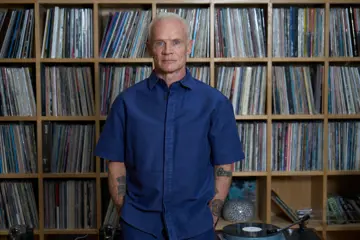Chorus is a hard, gritty watch. There is strength and resolve in this new work written by Ang Collins, directed by Clemence Williams.
Chorus tells the story of Agamemnon, music icon. Think avant-garde pop or IDM (intellectual dance music). Think celeb, scandal, and a cult following. We meet Agamemnon through the ensemble’s lyrical narration, five actors standing on the steps alongside the audience at the Old Fitz. Agamemnon, myth-like, is raised on a central cylindrical platform, centre-stage. It is the last show of her tour. She is exhilarated and exhausted, and there is something important that she needs to do after this final show, and before the next morning. But we don't know what.
We move back and forward in time: two months earlier, two months later; one year earlier, three years earlier; 13 years earlier… Agamemnon’s history is slowly unveiled. And the story becomes one of irreconcilable tension; is she a woman for herself, or a woman for others in her life?
Collins’ writing is superb. The show is an appropriation of the Greek tragedy Agamemnon, and so we know to expect a homecoming and betrayal. The excitement is in the journey – how we arrive at this tragedy when our hero, instead of an ancient warlord, is a queer musician in her mid-20s. Collins, with dramaturg Thomas De Angelis, ensures that we are never displaced by constant flashbacks and flash-forwards. The lyricism of the ensemble’s narration never obscures the narrative. It is never too heavy-handed, instead always textured richly.
Ella Prince’s rendition of Agamemnon is stoic and fierce. She is fighting a high-stakes battle, tortured by her past. Chemon Theys delivers a dramatic and realistic image of her astrology-loving Instagram influencer girlfriend. Her performance is crucial, adding a different dimension to the sometimes one-sized resilience and tension of Prince’s Agamemnon. Jack Crumlin plays the cis-het, white male antagonist both sensitively and repulsively. He melds conventional male lead elements with contemporary toxic associations in a way that makes the audience squirm. It’s a necessary pleasure to shoutout Eliza Scott’s deadpan humour, which stands out from the ensemble’s choral narration, and gives her a clear theatrical identity that has the audience titter away, even when they’re not sure they should.
Don't miss a beat with our FREE daily newsletter
Williams’ direction makes this piece special. There is an experimentalism to the form that pushes boundaries just enough, but never sacrifices competency. The use of cameras and a live-feed is often overdone, but Williams uses it tp open up the black box of the Old Fitz. Suddenly there is a new depth and space in the tight stage. Stylisation and pragmatic dialogue and action dance together with a simple sophistication. This work gestures at a director with a promise to work with the stage for many years.

